News in Brief
-
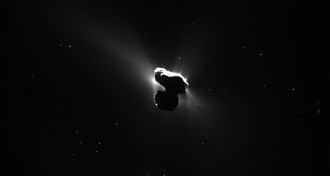 Planetary Science
Planetary ScienceComet 67P carries two ingredients for life: glycine, phosphorus
Two ingredients essential for all life, phosphorus and the amino acid glycine, have been found floating around a comet.
-
 Psychology
Psychology‘Vocal fry’ makes female singers seem expressive
Female singers who use vocal fry, the deep, creaky vocal effect made famous by pop stars like Britney Spears, may sound more expressive to listeners.
By Meghan Rosen -
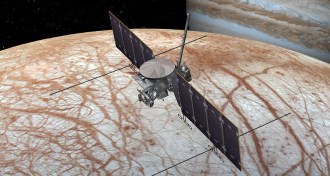 Planetary Science
Planetary ScienceSeismic experiment might reveal thickness of Europa’s ice
Crashing an empty rocket fuel tank into the surface of Jupiter’s icy moon, Europa, could help scientists figure out the thickness of the ice.
By Meghan Rosen -
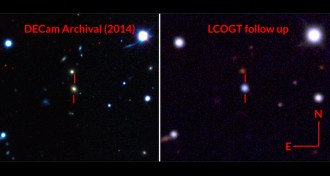 Astronomy
AstronomyReturn of superstar supernova raises doubt about its identity
The brightest supernova on record is back for round two, and might not be a supernova after all.
-
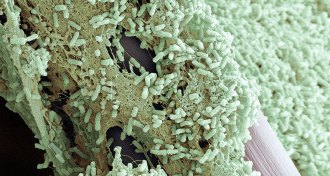 Life
LifeScientists find way to break through bad bacteria’s defenses
Enzymes can break down bacterial biofilm’s sugary walls.
-
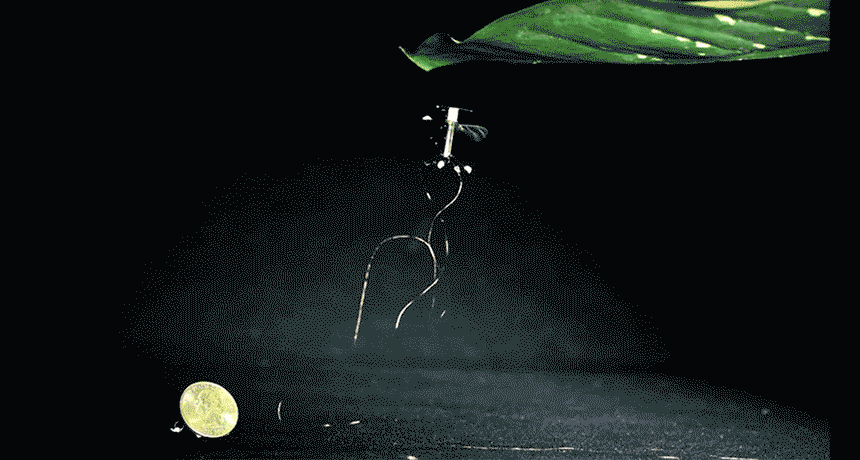 Tech
TechInsect-sized bot is first to both fly, land
A tiny aerial robot nicknamed RoboBee uses static electricity to perch on surfaces midflight. The landing device could one day help robots conserve energy during search and rescue missions.
By Meghan Rosen -
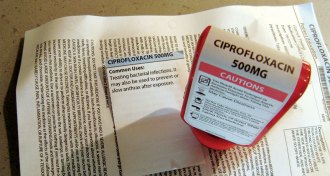 Neuroscience
NeuroscienceWiping out gut bacteria impairs brain
Antibiotics that wiped out gut bacteria curbed brain cell production in mice, a new study finds.
-
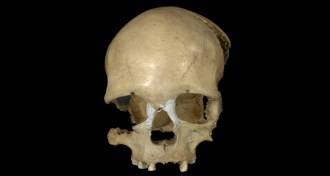 Genetics
GeneticsSome Stone Age humans ventured back to Africa
DNA from an ancient woman suggests some humans trekked back to Africa.
By Bruce Bower -
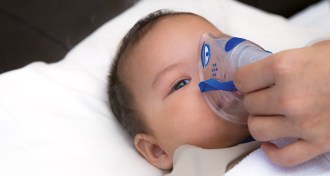 Genetics
GeneticsFaulty gene can turn colds deadly for babies, toddlers
Children with a faulty virus-sensing gene may land in intensive care after a cold.
-
 Neuroscience
NeuroscienceBrain waves in REM sleep help store memories
Mice with disturbed REM sleep show memory trouble.
-
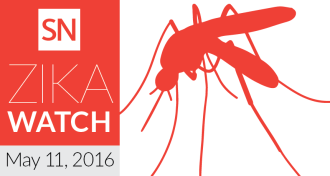 Health & Medicine
Health & MedicineMouse studies link Zika virus infection to microcephaly
Three new studies in mice shore up the link between microcephaly and Zika virus infection.
By Meghan Rosen -
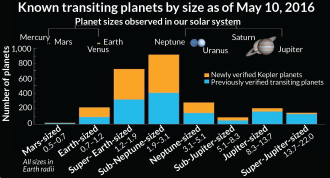 Astronomy
AstronomyKepler telescope doubles its count of known exoplanets
NASA’s Kepler space telescope adds 1,284 planets to the roster of worlds known to orbit other stars in our galaxy.